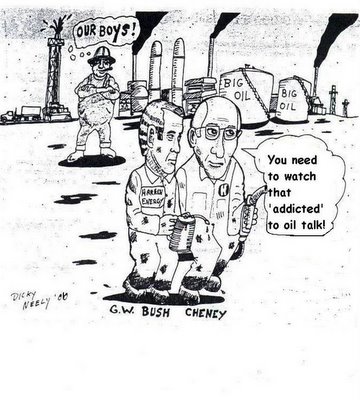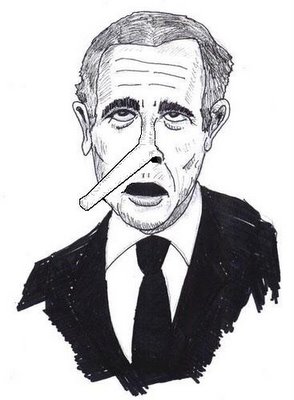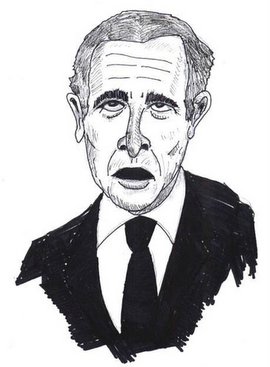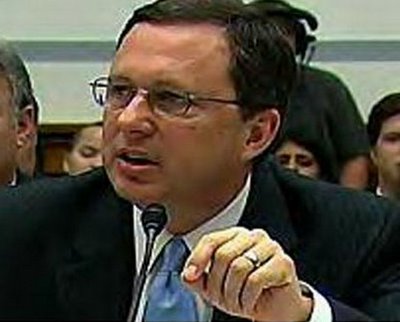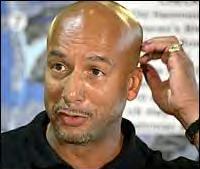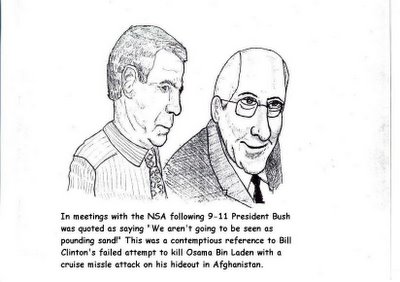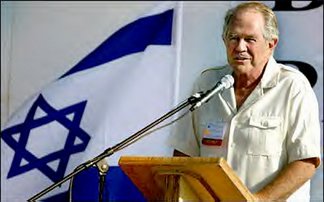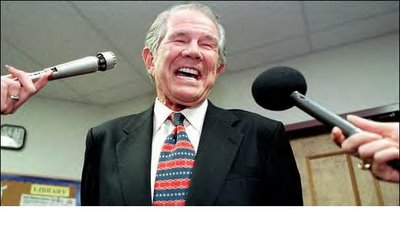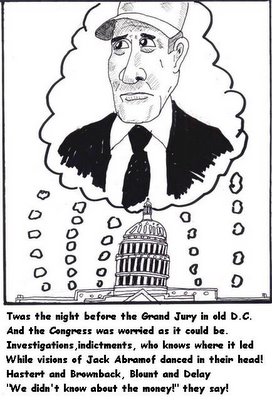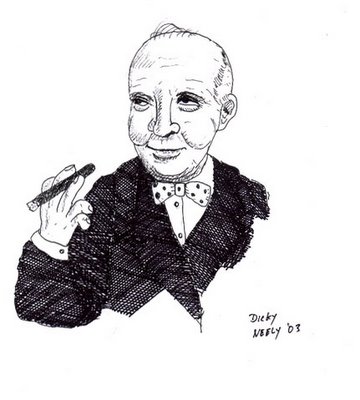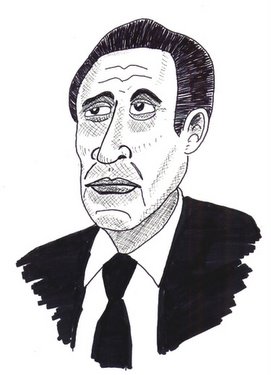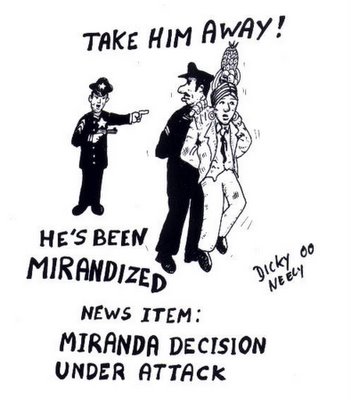 Andrew McCarthy Makes False Miranda, 9-11 Charges
Andrew McCarthy Makes False Miranda, 9-11 Charges(The following is an email received from the lefty blog Media Mattters for America)
In a NY Post book review,January 24 New York Post, Andrew C. McCarthy, a senior fellow with the Foundation for the Defense of Democracies and contributor to National Review Online, falsely suggested that, due to a position taken by the Clinton administration in 1999, the Constitution now requires that law enforcement officials give suspects Miranda warnings for confessions to be admissible in court. In fact, as the Supreme Court noted in Dickerson v. United States (2000), it was the Miranda court itself -- in 1966 -- that held that this requirement is embedded in the Constitution.In its 1999 brief in Dickerson, the Clinton Justice Department declined to defend the government's victory in a court of appeals ruling that Congress had used its power through a 1968 law to overrule the requirement -- imposed by the Supreme Court in the 1966 case of Miranda v. Arizona -- that suspects must be informed of their right to remain silent. McCarthy, in his book review, asserted that, "thanks largely" to the Clinton administration's decision not to argue against Miranda, the Supreme Court, in Dickerson, subsequently upheld Miranda's warning requirement as mandated by the Fifth Amendment, and struck down Congress' attempt to overrule it. From McCarthy's January 24 New York Post book review of Protecting Liberty In An Age Of Terror (MIT Press, 2006) by Philip B. Heymann and Juliette N. Kayyem: "Further, the authors' extension of American constitutional rights to alien detainees is high-minded; but -- thanks largely to a position taken by the Clinton Justice Department before the Supreme Court in 1999 -- the Fifth Amendment guarantee now incorporates Miranda protections. That is hardly appropriate for wartime enemy combatants." But McCarthy's assertion ignored the actual language in the Miranda court's opinion, as noted by the majority in Dickerson. McCarthy falsely suggested that the Dickerson decision was the first time the court ruled on whether Miranda protections are required by the Fifth Amendment. But the first time the court ruled that the Fifth Amendment guarantee includes Miranda protections was in Miranda. The question in Dickerson was ultimately whether the Miranda decision was right as a constitutional matter -- whether the court went too far or had since fundamentally undermined its ruling -- and not whether the Miranda court was in fact ruling on the parameters of the Fifth Amendment right against self-incrimination. As to the second question -- whether the Miranda court was, in fact, ruling on the parameters of the Fifth Amendment, which McCarthy falsely suggested was a matter of dispute before the Dickerson court -- the Dickerson court said this was not in dispute: The Miranda court, according to the majority in the Dickerson court, had clearly set out to articulate a constitutional standard, not merely an administrative rule of evidence that could be reversed by Congress: The Miranda opinion itself begins by stating that the Court granted certiorari "to explore some facets of the problems ... of applying the privilege against self-incrimination to in-custody interrogation, and to give concrete constitutional guidelines for law enforcement agencies and courts to follow." 384 U. S., at 441-442 (emphasis added). In fact, the majority opinion is replete with statements indicating that the majority thought it was announcing a constitutional rule.4 Indeed, the Court's ultimate conclusion was that the unwarned confessions obtained in the four cases before the Court in Miranda "were obtained from the defendant under circumstances that did not meet constitutional standards for protection of the privilege." 5 Id., at 491. McCarthy suggested that had the Clinton administration argued vigorously in favor of the position McCarthy thinks it should have argued for, the Dickerson court would have found -- contrary to the above statement -- that "the majority opinion" was not "replete with statements indicating that the majority thought it was announcing a constitutional rule." Persuading the court of a different interpretation of the law is one thing; persuading it that the facts are the opposite of what the court would otherwise have concluded they are is quite another.The specific question in Dickerson was whether Congress had the power to reverse Miranda legislatively, which it attempted to do in 1968 by statute. Prior to Miranda, the Supreme Court had said that a confession was admissible if it was voluntary, to be judged by "the totality of the circumstances"; after Miranda, a confession was presumed to be involuntary (and therefore inadmissible) if a suspect had not been given his or her "Miranda warnings." In 1968, two years after Miranda, Congress passed a law, Section 3501, which stated that the courts were to use the "totality of the circumstances" test that Miranda had repudiated. The law received little attention until a 1999 decision by the 4th U.S. Circuit Court of Appeals, which held that Miranda had not, in fact, enunciated a constitutional requirement but had merely set out a rule for the federal courts, which Congress has the power to overwrite. The 4th Circuit ruled that Congress did just that in 1968, by passing Section 3501. The Supreme Court reversed the 4th Circuit, ruling that the court's decision in Miranda was a determination of a constitutional right which cannot be abrogated by Congress, and that the court's decision in Miranda was correct as a matter of constitutional interpretation.In arguing Dickerson, the Clinton Justice Department chose not to argue to defend the 4th Circuit ruling that the 1968 statute should be upheld. But contrary to McCarthy's suggestion, the case did include an advocate for upholding the 4th Circuit decision. The Supreme Court asked law professor and current U.S. District Judge Paul G. Cassell, who had advocated through his legal scholarship the overturning of Miranda, to argue the position that the 4th Circuit decision should be upheld. By a vote of 7-2, the Supreme Court upheld the original Miranda decision in Dickerson and reversed the 4th Circuit.McCarthy's suggestion that the 4th Circuit decision was reversed because of the Clinton administration's refusal to defend it is further undermined by the reasoning the court gave for ultimately ruling as it did. The majority opinion in the case, written by the late Chief Justice William H. Rehnquist, indicates that the court's decision rested on factors different from the merits of the 4th Circuit's ruling. Rehnquist wrote that -- essentially regardless of the merits of the 4th Circuit's ruling or of the original Miranda decision itself -- Miranda would be upheld largely because it has "become embedded in routine police practice to the point where the warnings have become part of our national culture": Whether or not we would agree with Miranda's reasoning and its resulting rule, were we addressing the issue in the first instance, the principles of stare decisis weigh heavily against overruling it now. ... While" 'stare decisis is not an inexorable command,'" State Oil Co. v. Khan, 522 U. S. 3, 20 (1997) (quoting Payne v. Tennessee, 501 U. S. 808, 828 (1991)), particularly when we are interpreting the Constitution, Agostini v. Felton, 521 U. S. 203, 235 (1997), "even in constitutional cases, the doctrine carries such persuasive force that we have always required a departure from precedent to be supported by some 'special justification.'"[...]We do not think there is such justification for overruling Miranda. Miranda has become embedded in routine police practice to the point where the warnings have become part of our national culture. See Mitchell v. United States, 526 U. S. 314, 331-332 (1999) (SCALIA, J., dissenting) (stating that the fact that a rule has found "'wide acceptance in the legal culture'" is "adequate reason not to overrule" it). While we have overruled our precedents when subsequent cases have undermined their doctrinal underpinnings, see, e. g., Patterson v. McLean Credit Union, 491 U. S. 164, 173 (1989), we do not believe that this has happened to the Miranda decision. If anything, our subsequent cases have reduced the impact of the Miranda rule on legitimate law enforcement while reaffirming the decision's core ruling that unwarned statements may not be used as evidence in the prosecution's case in chief. And, even though the Justice Department declined to argue against Miranda in the case, the court did hear that argument from Cassell. From Dickerson: Because no party to the underlying litigation argued in favor of [Section] 3501's constitutionality in this Court, we invited Professor Paul Cassell to assist our deliberations by arguing in support of the judgment below. Contact: Andrew C. McCarthyContact: New York PostNew York Post New York Post 1211 Avenue of the Americas New York, NY 10036-8790 Main Office: (212) 930-8000
This mail was sent by Media Matters for America
